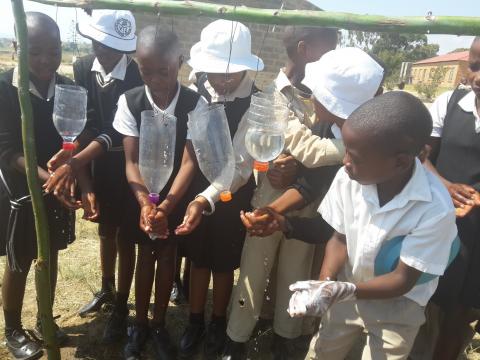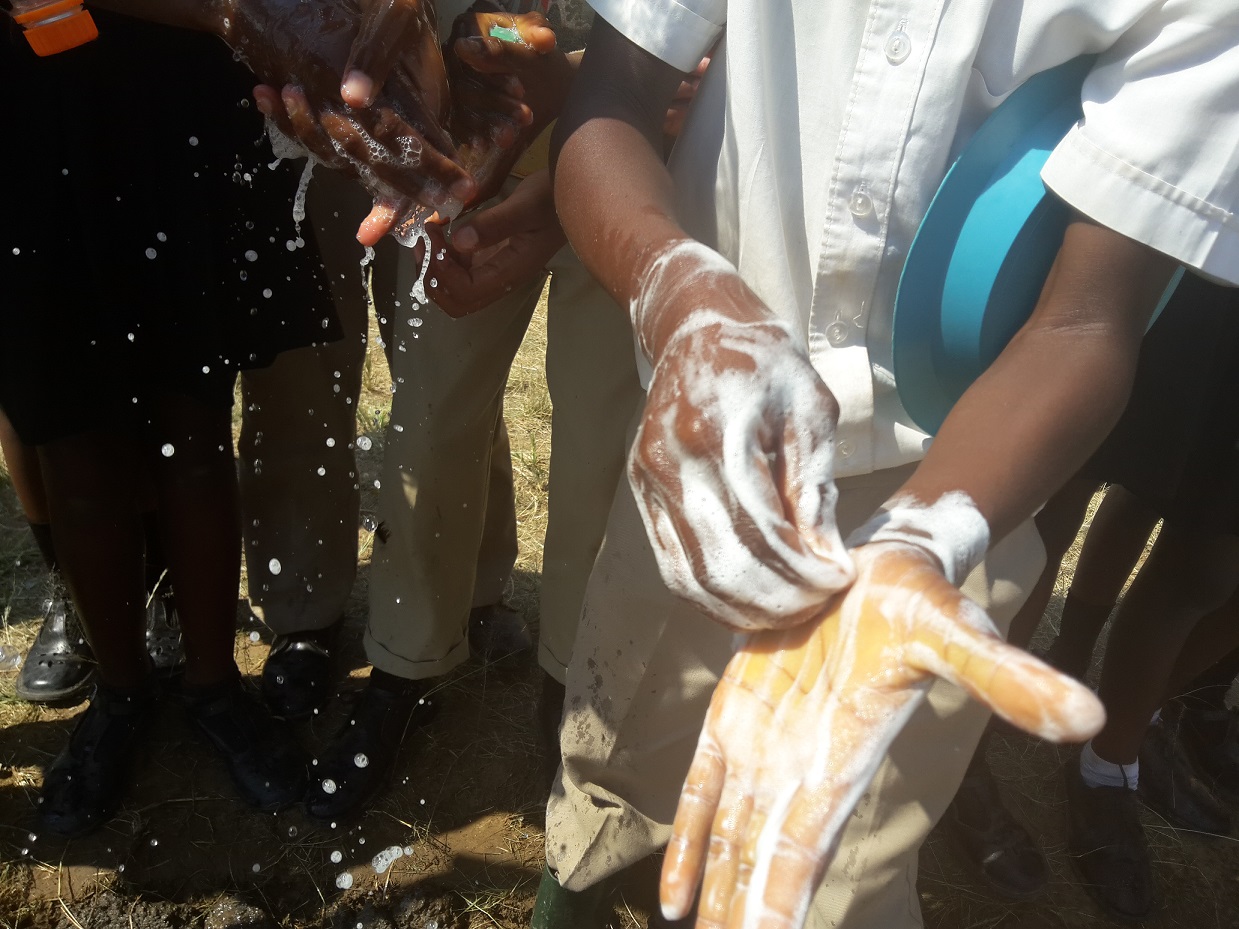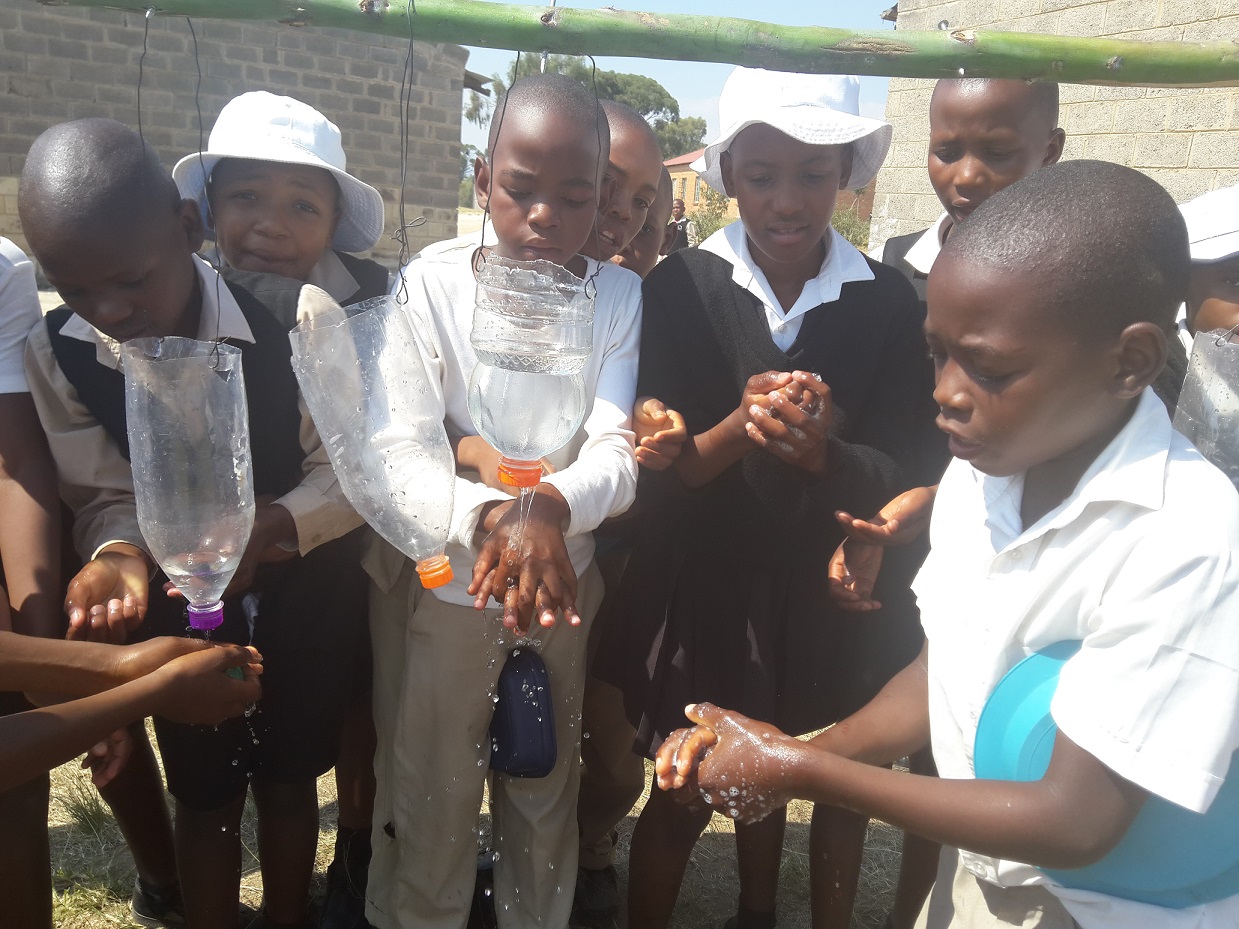Hand washing becomes a normal practice for schoolchildren in Lesotho

It was 11 in the morning at Koali primary school and time for lunch. The school organizes lunch for those children who comes to school without eating food. Thato, 11-years old, rushes out and runs to reach their Tipi tap water station first. He gets the bar soap he brought from home, rubs his hands thoroughly. He then squeezes the water from the tipi-tap bottle cleaning her hands.
“I always want to make sure that I reach the tipi tap first because once my classmates crowds the place, I never get to wash my hands the way we should. Our teacher taught us that every time we come from a toilet and before eating, we must wash our hands clean to keep us away from diseases”, Thato explains. In the past, he added, he always got some rashes on his face or all over his body just like many other students at school.
Hand washing becomes a norm at Koali primary school within Sefikaneng area in the South of Lesotho, thanks to the hygiene education that is part of World Vision’s Sanitation and Hygiene Project.
“Since we learned to wash our hands properly, I do not see that problem anymore and this teaches me that keeping our bodies clean at all times prevents infections”, he said. As Thato finishes cleaning his hands, the rest of his schoolmates also gathered by the tipi- tap washing their hands before they take their meal.
“The value of hand-washing extends not only here in school but also at home. I always make sure that my children do this, too. We know that we have to wash our hands but we were not aware on how to do it properly. We learned after World Vision trained us along with how we can keep our school environment clean as a preventive measure against infections”, said Makhemi Khanyane, the school principal.
She made sure the parents were also included in the training to ensure that the practice continues even at home. “Hygiene education forms part of our package. It was critical that as we put up water sources as it may not help that much if do not include hygiene as a preventive measure against infections”, said Nkopane Masheane, the WASH coordinator. She added that many schools are taking it seriously and hand washing became a regular practice.
The 2015 UNICEF Report on Sanitation stated that monitoring hand-washing behaviour is difficult but the presence of soap and water at a designated place has helped to encourage the practice. The full benefits of improvement in access to sanitation and drinking water is futile without good hygiene. Of the range of hygiene behaviours considered important for health, hand washing with soap was a top priority in all settings.
The hand washing with water and soap at Koali primary school is indication that the hygiene education that comes with the water, sanitation and hygiene program is beneficial not only to the children in school but to all children and members of the entire household.

